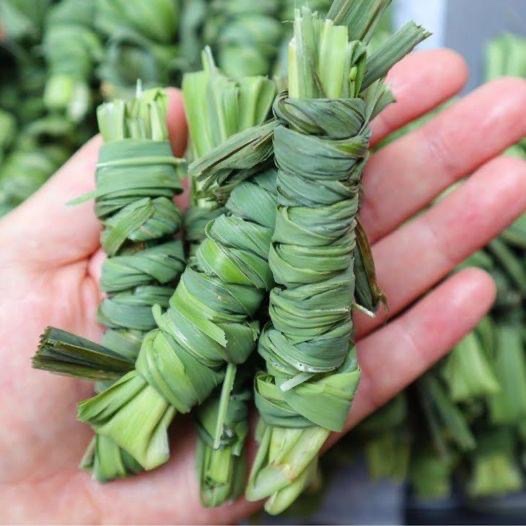
Lemongrass is a popular herb with a refreshing citrus fragrance and taste that can enhance both culinary and medicinal creations. Whether you grow your own or purchase it, proper storage and wrapping techniques can significantly extend the freshness and potency of lemongrass. In this simple guide, we will show you how to keep your lemongrass vibrant and aromatic for longer.
Why Proper Storage Matters
Lemongrass, like many other herbs, begins to lose its flavor and nutritional benefits as soon as it is harvested. By storing it correctly, you can preserve its delightful aroma, taste, and health benefits for whenever you need them.
Preparing Lemongrass for Storage
Step 1: Cleaning
Start by gently rinsing the lemongrass stalks under cold water to remove any dirt or debris.
Pat them dry with a clean towel to remove excess moisture, which can lead to mold or spoilage.
Step 2: Trimming
Trim the root end slightly to freshen it up, as this can help with moisture absorption if you choose to store them in water.
Remove any outer layers that seem tough or dried out.
Storing Lemongrass
Option 1: In the Refrigerator
Wrapping in Paper: Loosely wrap the lemongrass in a damp paper towel. This provides the right amount of moisture without soaking the herb.
Placing in a Plastic Bag: After wrapping, place the lemongrass in a plastic bag. Avoid sealing the bag completely, as some air circulation will prevent excessive moisture buildup, which can cause decay.
Option 2: In Water
Using a Jar or Vase: Trim the ends of the lemongrass and place the stalks in a jar or vase filled with a small amount of water. Only the root ends should be submerged.
Changing Water Regularly: Change the water every few days to keep it fresh and free from bacteria.
Option 3: Freezing
Prepping for Freezer: If you won’t be using the lemongrass soon, you can chop it into pieces and freeze it.
Storage Method: Place the chopped lemongrass in an airtight container or a sealable freezer bag. Frozen lemongrass can last for several months and can be used directly in cooking without thawing.
Tips for Longevity
Regularly check the lemongrass for any signs of spoilage or mold, especially if stored in the refrigerator.
Always store lemongrass in a dry and clean state to prolong its freshness and life span.
Conclusion
Properly storing lemongrass can have a significant impact on its lifespan and the preservation of its unique flavor and aroma. Whether you choose to refrigerate, place it in water, or freeze it, these methods can ensure that you always have fresh lemongrass on hand for your teas, dishes, and remedies. By taking a little care in how you store it, you can fully enjoy the potential of this wonderful herb!





